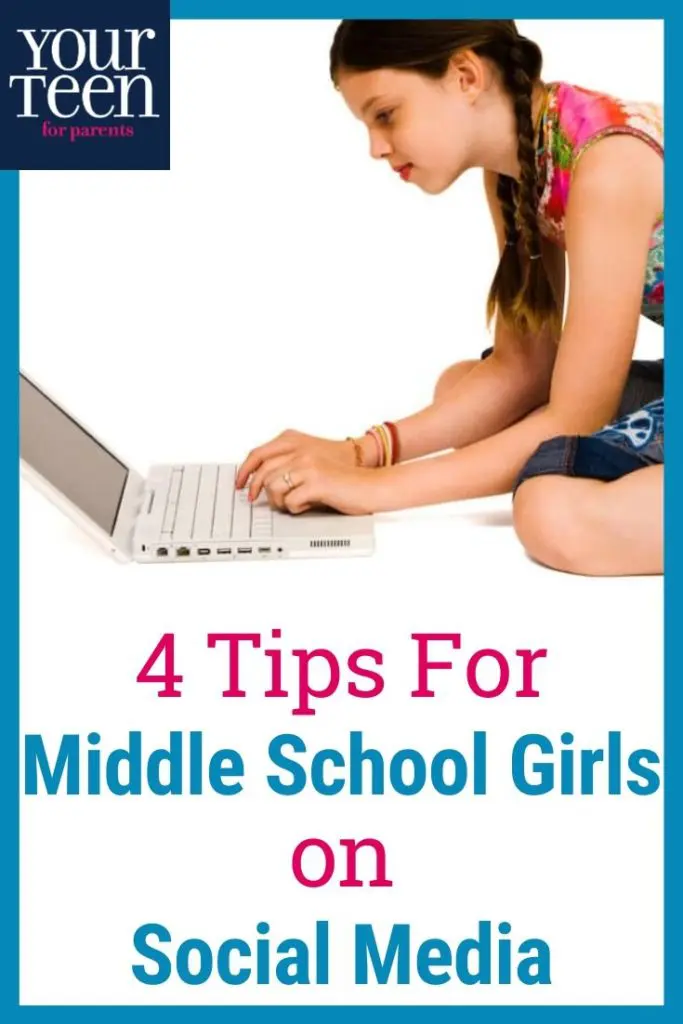Katie Hurley LCSW, is the author of No More Mean Girls and The Depression Handbook. As our teenage girls shift to using even more digital communication during this unusual time, it is even more important for them to think about the tone they use in their texts or posts on social media and the overall purpose of what they’re doing. Hurley shared helpful advice for parents about how to help girls keep the focus on being positive while they are online.
| [adrotate banner=”169″] |
4 Tips for Middle School Girls and Social Media
1. Follow the 3-minute rule
I tell kids all the time to follow the three-minute rule. Create your post, but don’t hit publish on it. Set a timer for three minutes. Walk away. Do something else. Go outside. Get some fresh air. Come back after three minutes. Reread it and then say to yourself, “Is it useful? Could this potentially hurt anybody? Is it going to help anybody? Is anyone going to feel left out?” Do a solid gut check. If they realize that someone might be left out or she’s not tagged in it, or this might hurt this person’s feelings if they read it this way, then delete it and try again. We get as many tries as we want, but once we hit publish, it’s out there forever. So that’s my number one.
2. Avoid sarcasm
I also don’t encourage sarcasm or snarkiness for middle schoolers on social media. First of all, most middle schoolers don’t know sarcasm. They think they do. They think they know how to do snark and sarcasm, and they actually really don’t. So they say these things that are very literal and hurtful to one or two people. And then they try to get out of it with a “Just kidding.” And that’s not how it works. To use sarcasm in a funny way, you have to be really sophisticated. And they’re not there yet. They don’t have the growth and knowledge yet to really pull that off. So I usually tell them to be very direct and to be caring.
Parents can say, “Oh, I get the joke you’re making. Let’s think of a way to say that in a more obvious way so everyone will get it.” The problem is we come at kids. We say, “No, you can’t say that.” It makes it seem like they’re doing terrible things. They’re not meaning to do terrible things most of the time.
3. Use social media for good
They should focus on how to use social media for good. When kids learn to put positive things on social media, they spread like wildfire. I see it all the time when they just shift their thinking and say, hey, I’m going to do something positive. But when they choose to be negative, a lot of people get hurt. There are ripples and they run beyond your own feed because things get shared. So they have to be careful.
4. Ask an adult if you’re not sure what something means
There are also times when middle schoolers misread somebody else’s post and they take it very personally. Then the other kid says, “It wasn’t about you” or “That’s not what I meant” or “I was just joking.” Our jokes fall flat when we’re only putting them in 160 characters or less sometimes. So I always tell kids, “If you’re reading something and you’re not sure, send me a screenshot and ask, “What do you think this means?” And I’ll say, “Oh, I think it means something funny” or “Oh, I don’t think that that’s very kind. What should we do about that?” So ask an adult. Ask a big sister. Ask a cousin. Ask somebody else to help you read between the lines. Because we don’t always read things the way they’re meant to be read when our emotions are high, when we feel like you’re under attack.

Watch the complete interview with Katie Hurley for more tips about how to support middle school and high school girls during this time.





